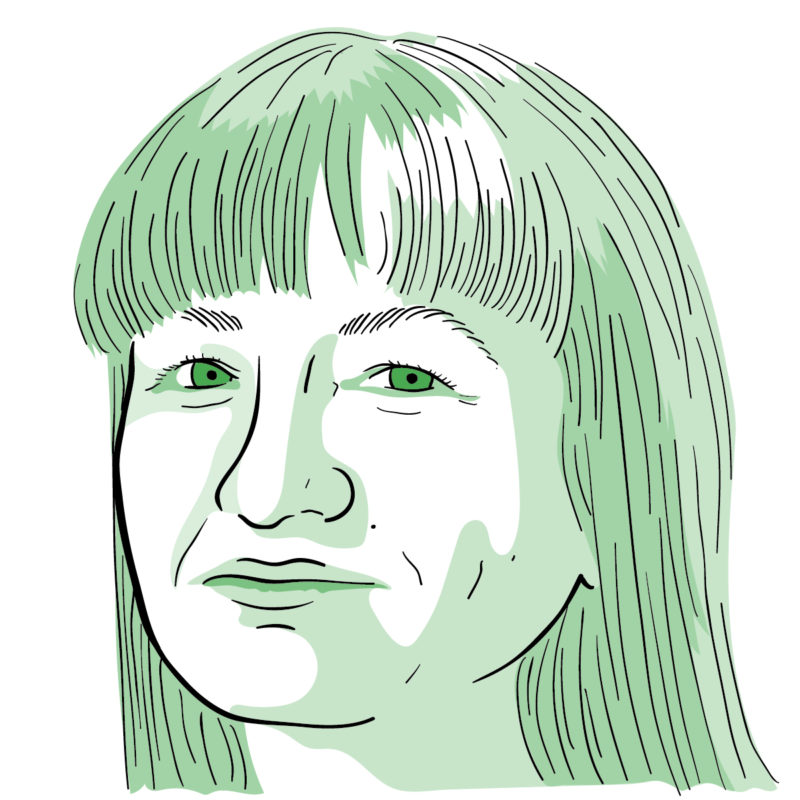This conversation was co-organized by The Believer and the 2018 Texas Book Festival, and occasioned by the publication of Sandra Cisneros and Liliana Valenzuela’s Puro Amor (Sarabande Books), a bilingual chapbook illustrated by Cisneros.
PART I.
SANDRA CISNEROS: Lili, how long have we known each other?
LILIANA VALENZUELA: We go back bastante, to the ’80s, maybe ’87, after your stay at the Paisano ranch?
SC: I won the Dobie Paisano Fellowship as I was packing to leave Texas, thinking I would never come back again. I was wrapping a vase with newspaper, I remember, when they called and gave me the good news. But instead of responding with a “Yay!,” I said flatly, “Oh.” Because I didn’t have a car and was going to have to buy one. I was going to have to stay in Texas. My first year had been rather brutal, so I thought the award was bad news: Oh, I gotta stay in Austin and live on a ranch for six months! But I did it and it changed my whole attitude about Texas. Before then, I didn’t understand how anyone could bear to live someplace without a lake or an ocean. After my residency at the Dobie Paisano ranch, I realized you had to look up, and there it was—that blue everyone needs to save your life. We met in ’87 after this discovery.
LV: El cielo de Texas es muy grande, muy azul.
SC: Muy grande, muy azul, y gratis para todos.
PART II.
SANDRA CISNEROS: I wanted to ask you about the process of translation. I think you should have won an award for translating Caramelo, which was done in a very short amount of time. You did it while the book was in production. In how many months?
LILIANA VALENZUELA: I translated it into Spanish in about six months. It was a simultaneous publication in English and Spanish.
SC: And I wrote the book in nine years.
LV: Right, yeah. [Laughs] It was a very short amount of time for such a lengthy novel, and the novel is very poetic as well, as is all of your writing. On the surface, it may look deceptively simple, but your work is very well built, very well put together. There’s a lot of poetry, a lot of sounds I needed to re-create. It was slow for you to write and it was slow going for me to translate because of that.
SC: That’s why you do it so well, because you’re a poet too. You wrote an essay about the process of translating it that is only in the Spanish version of...
You have reached your article limit
Sign up for a digital subscription and continue reading all new issues, plus our entire archives, for just $1.50/month.
Already a subscriber? Sign in





